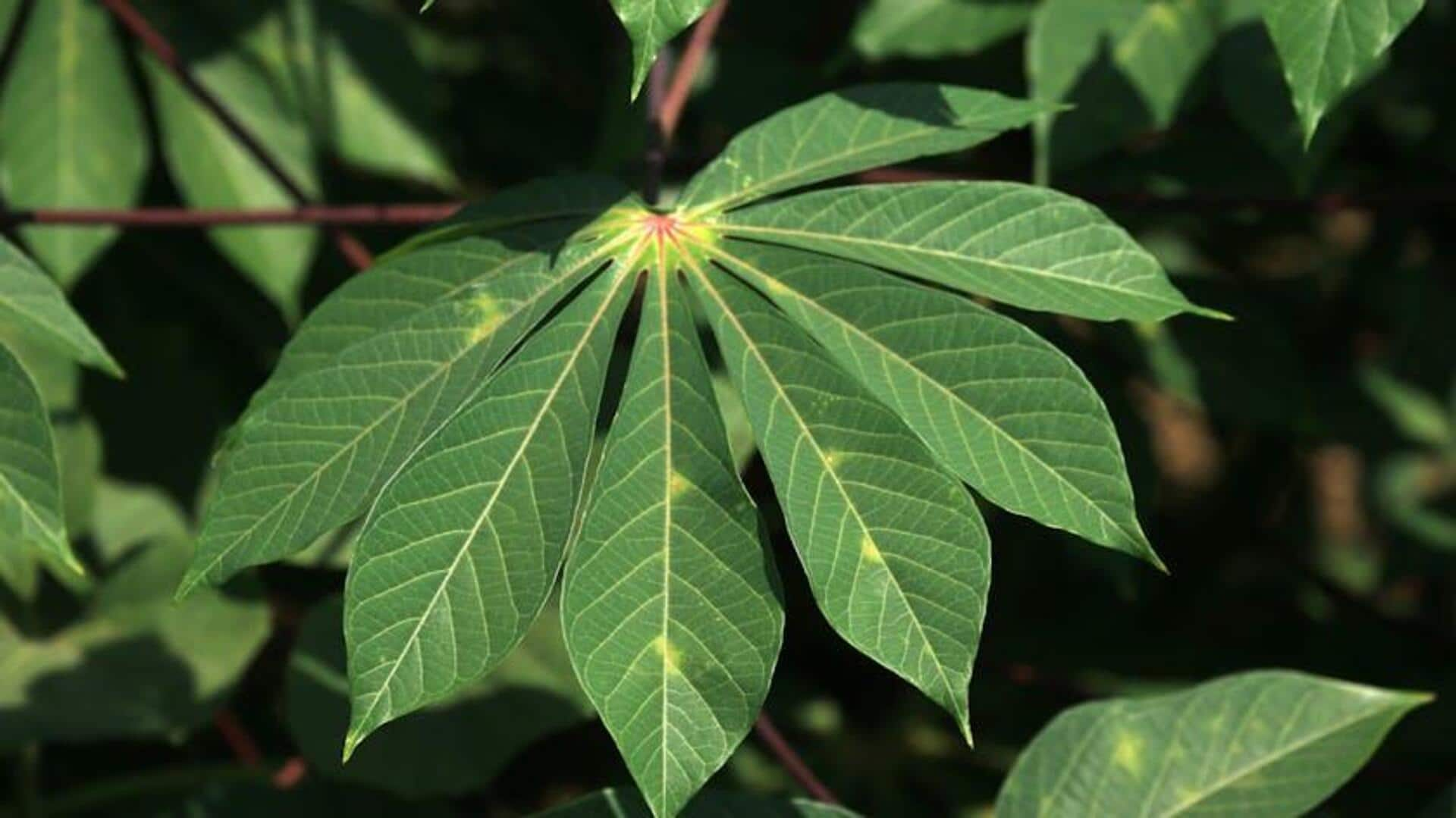
The superfood charm of African cassava leaves
What's the story
Cassava leaves, long a cornerstone of African culinary traditions, are now gaining recognition as a global superfood.
Boasting a rich profile of vitamins and minerals, these leaves are not only a versatile ingredient in a variety of dishes but also a powerhouse of health benefits.
Read on to discover the impressive nutritional value, culinary potential, and health advantages of incorporating cassava leaves into your diet.
Nutritional profile
A nutrient powerhouse
Cassava leaves are a nutrient powerhouse.
They are rich in vitamin A, essential for healthy vision, and vitamin C, a potent antioxidant that combats harmful free radicals.
These leaves also provide a decent amount of protein and dietary fiber.
Given their impressive nutrient profile, cassava leaves can be a great addition to a vegetarian diet.
Cooking tips
Culinary versatility unleashed
The beauty of cassava leaves lies in their versatility in the kitchen. They serve as a flavorful base for various dishes, from stews and soups to sauces.
However, it's crucial to cook them well to eliminate their natural toxins.
Blending them into a paste or finely chopping them before cooking helps release their flavor and improves their texture in dishes like cassava leaf stew.
Wellness boost
Health benefits galore
Including cassava leaves in your diet offers a wealth of health benefits.
Their high fiber content aids digestion and promotes gut health, while the antioxidants present help fortify the immune system.
Plus, studies have shown that cassava leaves exhibit anti-inflammatory properties, providing potential relief for individuals with inflammation-related conditions.
These combined benefits make them a powerful ally for your overall well-being.
Eco-friendly option
Sustainable superfood choice
Cassava plants are highly resilient, with the ability to withstand drought conditions and thrive in nutrient-poor soils where other crops struggle to survive.
This not only makes cassava leaves a green food choice that contributes to food security in many parts of Africa, but it also means that by choosing cassava leaves, you're not only making a healthy decision, but you're also playing a part in promoting sustainable farming practices.
Preparation hacks
Cooking with cassava leaves: Simple tips
Before cooking with cassava leaves, make sure to rinse them well under running water to get rid of any dirt or grime.
Since they contain cyanide compounds in their raw state, it's important to boil them for a minimum of 15 minutes to make them safe to eat.
Don't be afraid to play around with spices! Garlic, ginger, and chili can add a delicious kick to your cassava leaf dishes.